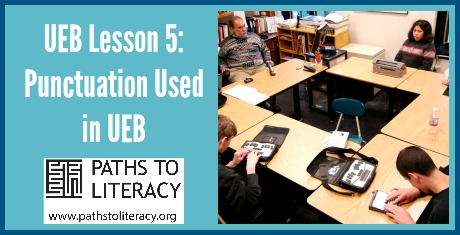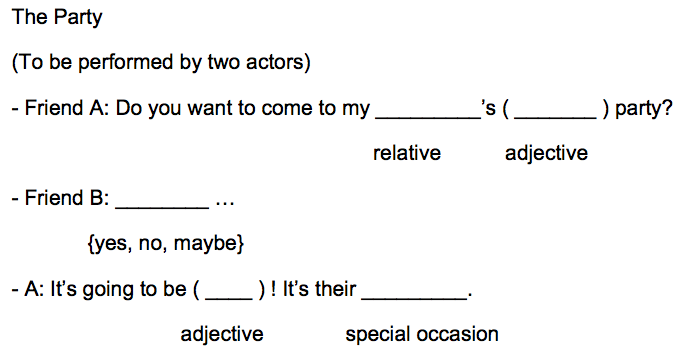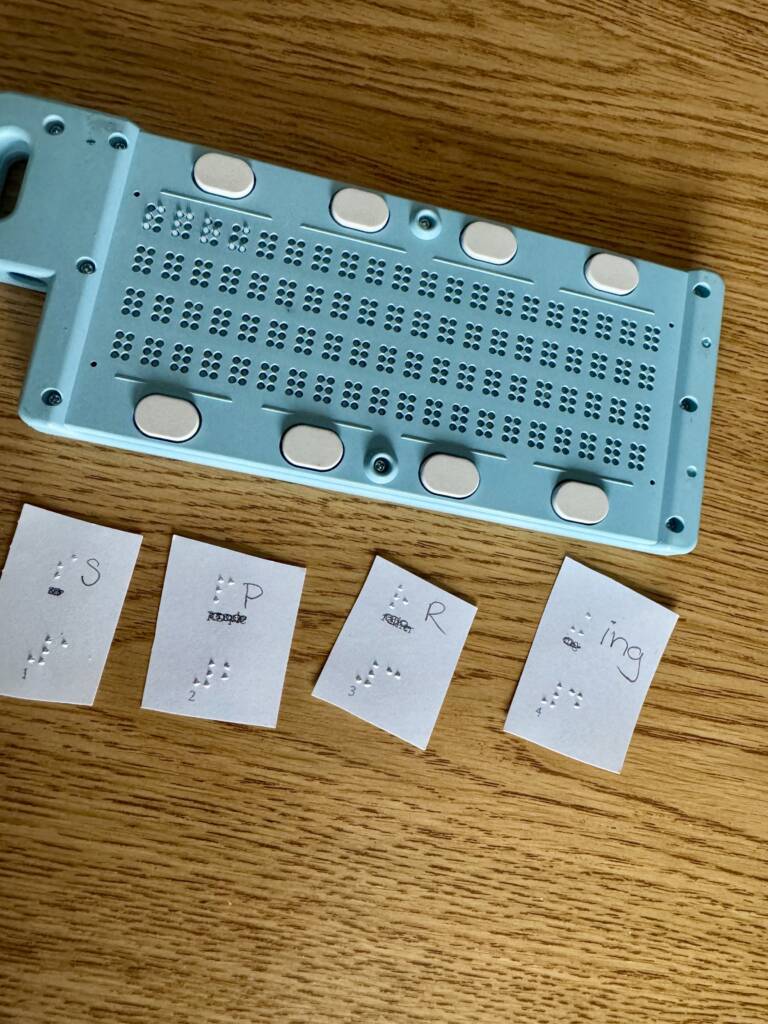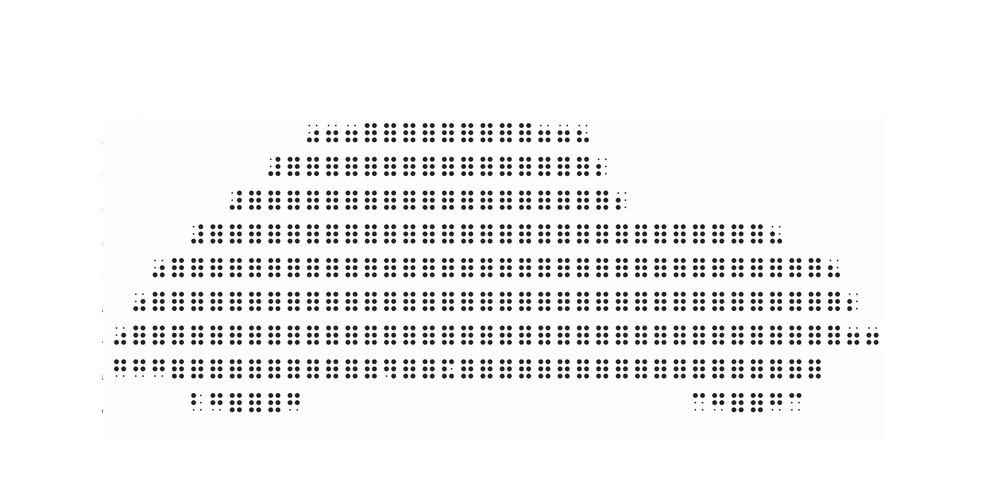This post is the fifth in a series of lessons on teaching students who are braille readers to make the transition from EBAE (English Braille American Edition) to UEB (Unified English Braille). All lessons are by Catherine Summ and Suzanne Cappiello, who both work as Education Consultants for the Department of Rehabilitative Services (DORS-BESB) in CT. See the full UEB Curriculum with all lessons
Goal:
Grammar review:
-
When to use ellipsis: To quote material, but eliminate some words. To indicate a pause in the flow of a sentence. For more information go to: http://www.grammarbook.com/punctuation/ellipses.asp
-
When to use single quotes: Use single quotation marks for quotations within quotations. For more information go to: http://www.grammarbook.com/punctuation/quotes.asp
-
When to use parentheses: Parentheses mainly enclose information that is not vital to a sentence. No matter what you put within parentheses, your sentence must still make sense if you delete them and everything inside. Note that you are allowed to put both partial sentences and complete sentences within parentheses. For more information go to: http://www.quickanddirtytips.com/education/grammar/parentheses-brackets-and-braces?page=all#sthash.GSWpBCH9.dpuf
-
When to use brackets: Use brackets in sentences where you want to put parentheses within parentheses. Since two parentheses in a row would be confusing, you bookend your parentheses with brackets. The order is opening parenthesis, opening bracket, closing bracket, closing parenthesis. Authors and editors also use brackets to enclose comments, corrections, explanations, notes, or translations that were not in the original text. Another place to use brackets is around the Latin word “sic,” which means “thus.” For more information go to: http://www.quickanddirtytips.com/education/grammar/parentheses-brackets-and-braces?page=all#sthash.GSWpBCH9.dpuf
-
When to use braces: Use a set of braces to indicate a set of equal choices.
-
When to use dash: A dash is emphatic. It may be used in place of commas, a semicolon, a colon or parentheses. Some consider it informal. Dashes set off loosely related comments and sudden breaks in thought. Informally, they separate comments that stray from the central idea of the sentence. Formally, they separate a list of items that already includes commas. Dashes imply the words ‘to’ and ‘and.’ For more information go to: http://www.grammar-quizzes.com/punc-dashes.html Note: Several of the poems in lesson 3 of this series contain the dash.
-
When to use long dash: A long dash’s primary job is to tell the reader that you’ve jumped tracks onto a new (though related subject) just for a moment. The words between a pair of long dashes may or may not form a complete sentence. A dash can’t link two complete sentences. For more information: http://www.dummies.com/how-to/content/how-to-use-long-and-short-dashes-in-your-writing.html
-
When to use underscore: The underscore sign is mainly used to show a space where a space is not allowed, such as in internet usernames, email addresses and some computer programs. Use multiple underscores to create fill in the blank lines. For more information: http://www.really-learn-english.com/underscore-sign.html
-
When to use angles: Angle brackets <> are used to illustrate emoticons. Angles are infrequently used to denote words that are thought instead of spoken. They are also used to demonstrate how something is written. For more information: https://en.wikipedia.org/wiki/Bracket
Procedure:
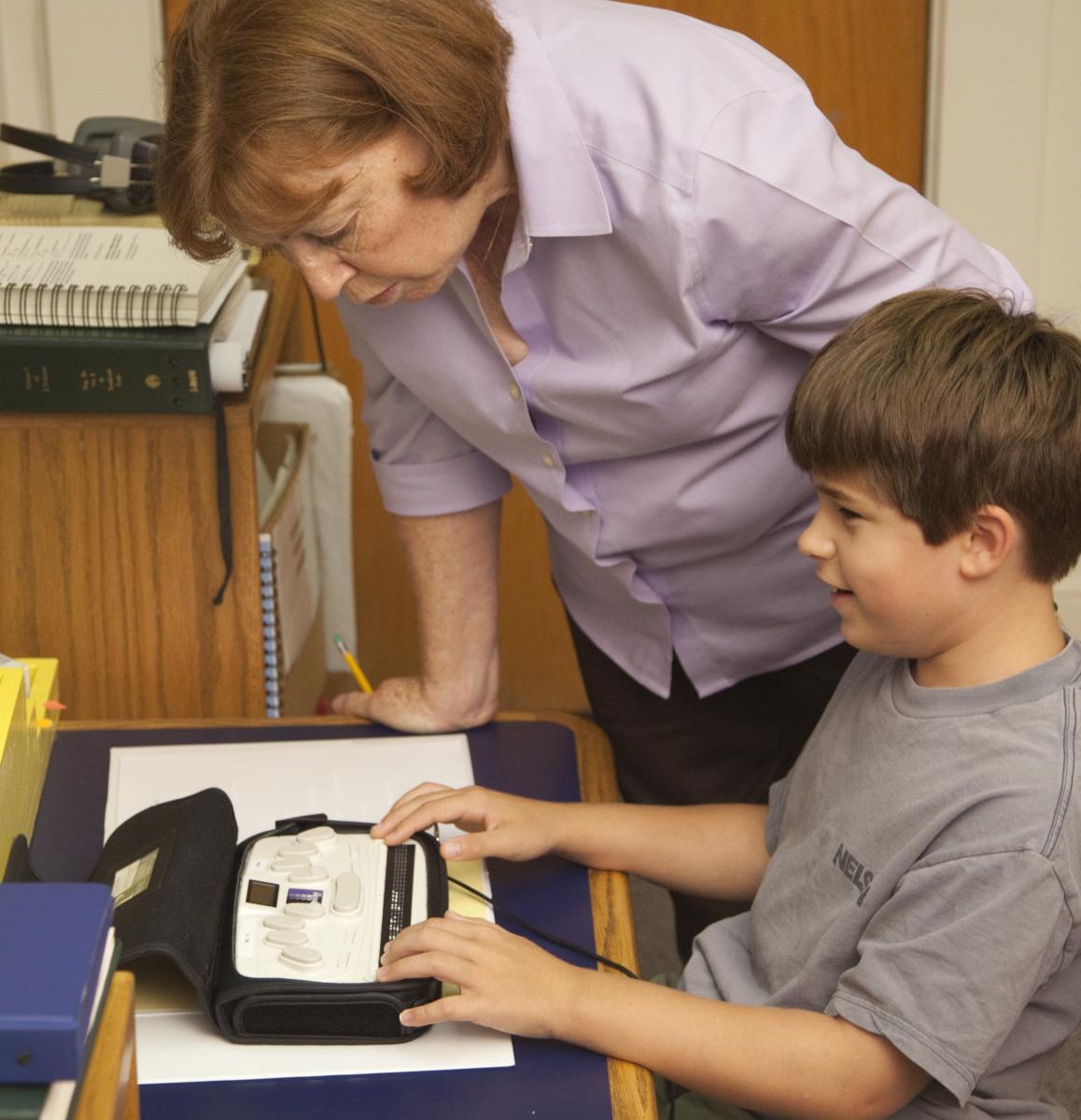
-
The special treat is for him, her… and you.
- And the winner is…
- Thank you for the book! 〈3
- Fill in the ____ with the answer of your choice.
- “They are getting married (they love each other [of course!]).”
- The teacher said, “Even if you’ve never read a word of Shakespeare, I’m sure you’ve heard ‘To be or not to be’ a thousand times.”
- Answer the question [True] or [False].
- 〈 What an unusual flower! 〉
- Oh no——it’s snowing—the roads will be slick!
- His email address is student_study@school.edu
- Joe Smith, student-athlete-comedian, won the class prize.
- Our aunt-whom we love so much-is moving to another state.
- Joe Cool 〈coolj@beagleland.com〉
- After choosing your vegetable {corn, squash, asparagus}, choose your main dish.
- After we go grocery shopping—the cashier is such a busy-body—we’ll go get ice cream.
- They finally called me (after what seemed like an eternity) to tell me that I got the job.
- -Will she run for office?
- -Why wouldn’t she?
Additional Activities: Writing Practice
- “Hmm…” said Tom, thoughtfully.
- I don’t know…maybe go left?
- Another word for fast is _____.
- Her email address is cakes_cookies@baker.com.
- Will she-can she-win the race with a blister on her foot?
- On the last day of school there was only one thing left to do-celebrate!
- The musician on stage now—doesn’t he have a booming voice—is also a good dancer.
- Polly Esther 〈estherp@fabricwarehouse.com〉
- Plaintiff stated, “[m]y cause is [sic] just.”
- Pick a beverage {milk, juice, tea}.
- “I thought I heard our neighbor announce ‘the ice cream truck is here!’ before she treated everyone to fudgesicles,” said my mom.
- See you at the party! (insert heart)
- The relay team ran the race (boy, were they out of breath) and won a blue ribbon.
Assessment:
-
She said, “…I really don’t … understand it.”
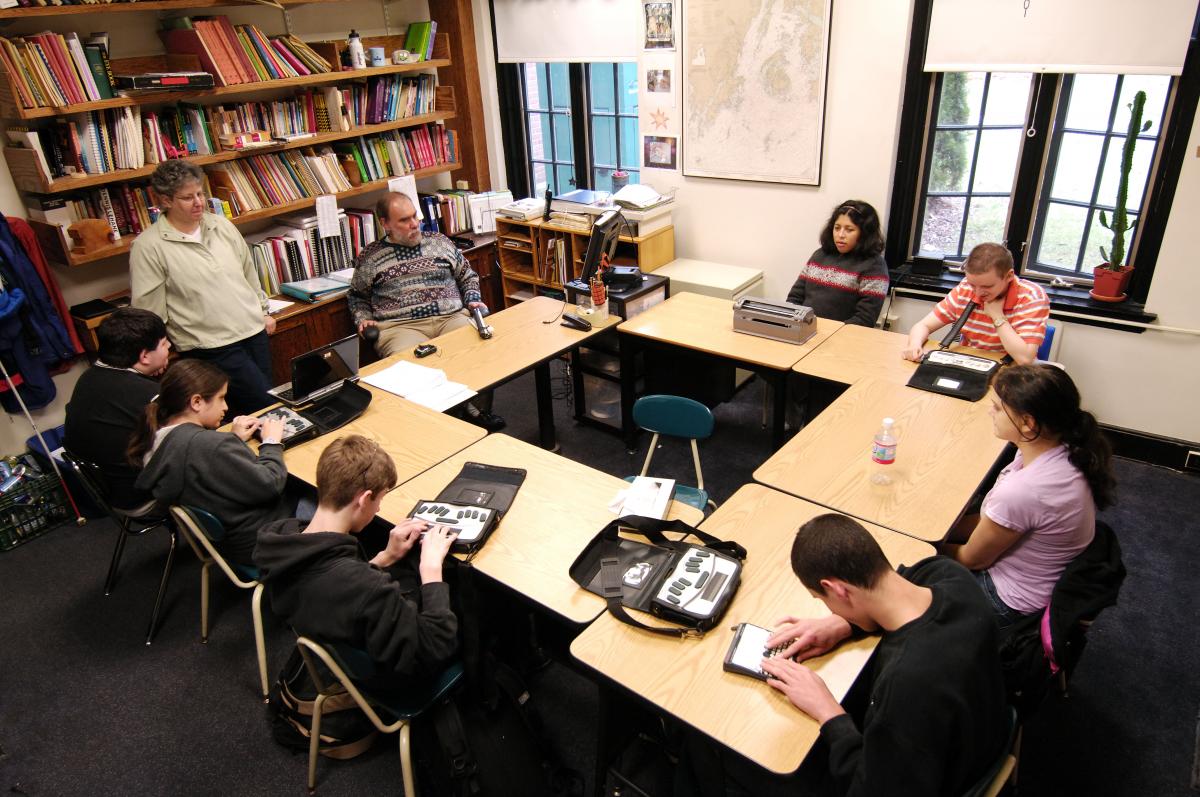
- My favorite color is ______.
- The email address sunny_day@beachside.com should be used when ordering a beach pass.
- “I distinctly heard him say, ‘please read chapter five in the history book for homework’ before the bell rang,” said my friend Sandra.
- On the worksheet mark the answer choices as [fact] or [fiction] before you hand it in for correction.
- I 〈3 the weekend!
- Backpack, water bottle, snack, comfortable shoes-I’m ready for a day in the city.
- The next unit in PE is goalball—we need to order new balls—a very active sport.
- The thing I like most about school (apart from summer vacation) is playing the flute in the band.
- Choose [yes] or [no] when you answer the question.
- In the following words the letters enclosed in brackets are optional: encyclop[a]edia, cancel[l]ed. bus[s]es.
- Select a game {Monopoly, Chutes and Ladders, Connect Four}, and join the group.
Educational Activity and Game:

